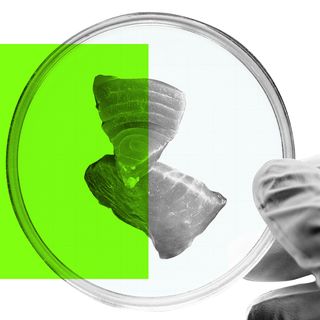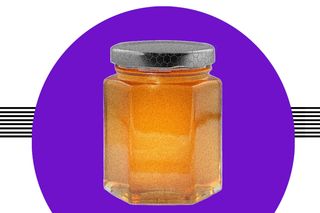
77% of India’s Most Popular Honey Brands Are Impure, Sugar‑Syrup Concoctions: Study
The findings come as consumption of honey has increased due to its perceived immunity-boosting properties.

Only three out of 13 honey brands commonly consumed in India have passed a purity test conducted by the Center for Science and Environment (CSE), a non-profit, public-interest research and advocacy organization in Delhi. The other 10 popular brands were impure admixtures of honey and sugar syrup, or entirely sugar syrup — a little pure honey adulterated with a lot of sugar syrup, CSE’s study revealed.
To determine purity, honey samples underwent two tests. Samples were first tested at the Center for Analysis and Learning in Livestock and Food, a multi-disciplinary laboratory of the National Dairy Development Board, located in Gujurat. The second test involved Nuclear Magnetic Resonance Spectroscopy, or NMR, an advanced laboratory test that is the international standard to determine honey purity. This test was conducted in Germany.
The only three brands that passed both tests were Saffola, MarkfedSohna, and Nature’s Nectar. The rest of the samples — including from bigger brands like Dabur, Patanjali, and Emami — failed the NMR test. Apis Himalaya, along with a few other brands, failed both tests.
“What we found was shocking. It shows how the business of adulteration has evolved so that it can pass the stipulated tests in India. Our concern is not just that the honey we eat is adulterated, but that this adulteration is difficult to catch. In fact, we have found that sugar syrups are designed so that they can go undetected,” Amit Khurana, program director of CSE’s Food Safety and Toxins team, told CNBC.
Reports suggest manufacturers have been obtaining adulterants like sugar syrup derived from rice, corn, beetroot, and sugarcane from China. Since Chinese imports were banned earlier this year, however, sugar syrup has been sourced by honey manufacturers locally.
Many of the brands that failed the tests have issued statements questioning the study and claiming their honey is 100% pure. Some have gone on to blatantly allege bad-faith intentions on the part of the CSE.
“[The study] seems to be an international marketing design to promote German technology and machines, which cost crores of rupees. Besides, it is an attempt to lower the market share of Indian honey in international trade,” Acharya Balkrishna, managing director of Patanjali Ayurved, told LiveMint.
Related on The Swaddle:
Air Pollution Is Impacting Health of India’s Bees, Wild Pollinators: Study
The report, and the industry drama around it, comes as demand for honey has shot up with consumers attempting to boost their immunity during the global pandemic. Honey is considered a therapeutic and nutritious supplement, even by clinical researchers. But honey adulterated by sugar syrup does not have the same benefits — and carries a host of health risks instead.
“We know that households today are consuming more honey because of its intrinsic goodness — anti-microbial and anti-inflammatory properties. Our research has found that most of the honey sold in the market is adulterated with sugar syrup. Therefore, instead of honey, people are eating more sugar. … Sugar ingestion is directly linked to obesity, and obese people are more vulnerable to life-threatening infections,” said Sunita Narain, environmentalist and director-general of the CSE. It’s “food fraud,” she said, which is “more damaging to our health than perhaps anything that we have found till now.”
Reportedly, the Ministry of Commerce had made it mandatory for all honey being exported from India to be screened using the NMR technique from August 2020. While quality checks within India don’t involve NMR testing, the Food Safety and Standards Authority of India (FSSAI) had informed state food commissioners as far back as December 2019 that sugar syrups were being used for adulteration and asked them to ramp up inspections. “Adequate database is not available yet to utilize NMR technique,” Arun Singhal, CEO of the FSSAI, told The Indian Express upon being contacted for comments on CSE’s study. However, he added: “We will study the findings published by CSE and take all action necessary to ensure that only pure and unadulterated honey is sold in our country.”
Aside from public health concerns, adulteration of honey with sugar syrup holds implications for the whole food supply, threatening the income of beekeepers and thus the number of bees available for pollination, an investigation by Down To Earth found.
“There is no norm that permits the mixing of honey with sugar syrup. But companies have been doing so and making huge profits in the process. We need the beekeepers because without them, there will be a decline in bees. And without bees, we will lose productivity of food, as they are crucial pollinators,” Narain lamented.
Devrupa Rakshit is an Associate Editor at The Swaddle. She is a lawyer by education, a poet by accident, a painter by shaukh, and autistic by birth. You can find her on Instagram @devruparakshit.
Related


The Amazon Lost Forest Area One‑Third the Size of Belgium to Agriculture, Mining in 2019‑20
